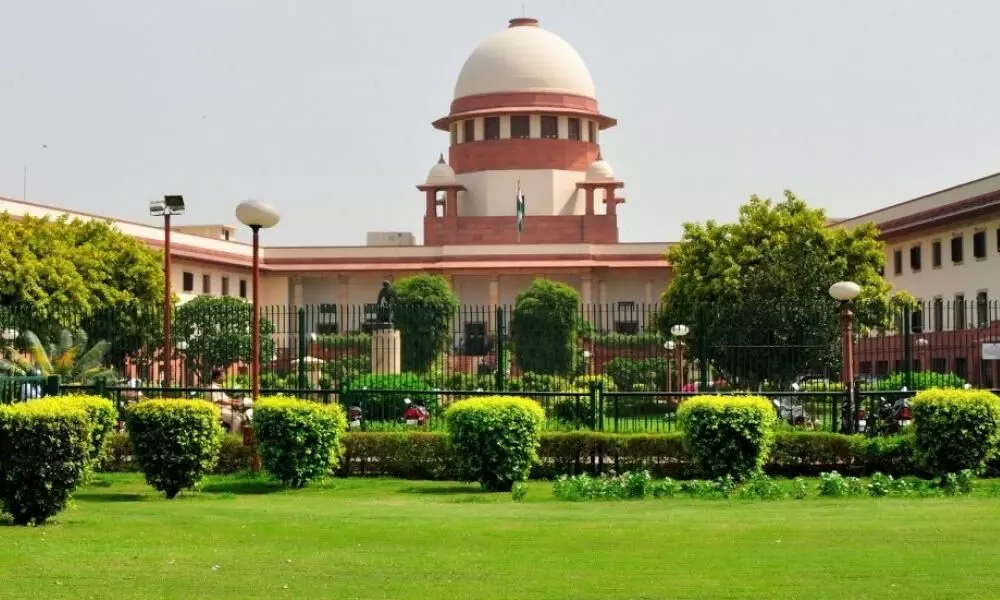
3 judge SC bench to hear pleas against Places of Worship Act on Oct 11
text_fieldsNew Delhi: The Supreme Court posted the hearing on petitions challenging certain sections of the Places of Worship (Special Provisions)Act 1991 before a three-judge bench. The apex court posted the matter for hearing on October 11, Asian News International reported.
On Friday, a bench headed by the Chief Justice of India UU Lalit asked the Union government to file its response to the pleas in two weeks. It also noted that the Centre had not done the same though the notice to respond to the pleas was issued last year.
Further, the court allowed applicants to intervene in the main pleas challenging the Act and asked them to file written submissions in not more than five pages. The court directed the parties to complete their pleadings before the date of the hearing.
The pleas challenging the Act argued that it stole the rights of Hindus, Jains, Buddhists, and Sikhs to restore their 'places of worship and pilgrimages' ruined by invaders- as per the cultural heritage under Article 29, but allows Muslims to claim the same under Section 107, Waqf Act.
Those who filed petitions challenging the Act include the daughter of the Kashi Royal Family, Maharaja Kumari Krishna Priya; BJP leader Subramanian Swamy; Chintamani Malviya, former Member of Parliament; Anil Kabotra, a retired army officer; advocate Chandra Shekhar; Rudra Vikram Singh, resident of Varanasi; Swami Jeetendranand Saraswati, a religious leader; Devkinandan Thakur, resident of Mathura and a religious guru.
Meanwhile, Jamiat Ulama-i-Hind had filed a petition countering the pleas challenging the Act, stating that allowing the pleas would open floodgates of litigations against many mosques across India, ANI reports.
One among the pleas against the Act states, "The Act excludes the birthplace of Lord Rama but includes the birthplace of Lord Krishna, though both are the incarnation of Lord Vishnu, the creator and equally worshipped all over the world." Other pleas state the Act completely offends the management, maintenance and administration of places of worship and pilgrimage guaranteed by Article 26 of the Indian Constitution.
The pleas challenged the constitutional validity of Sections 2, 3, and 4 of the Places of Worship (Special Provisions) Act 1991, which according to petitioners, have violated Articles 14, 15, 21, 25, 26, 29 as well as principles of secularism and the rule of law. Sections 2, 3, and 4 stole the Right To Judicial Remedy, the petitions claimed.






